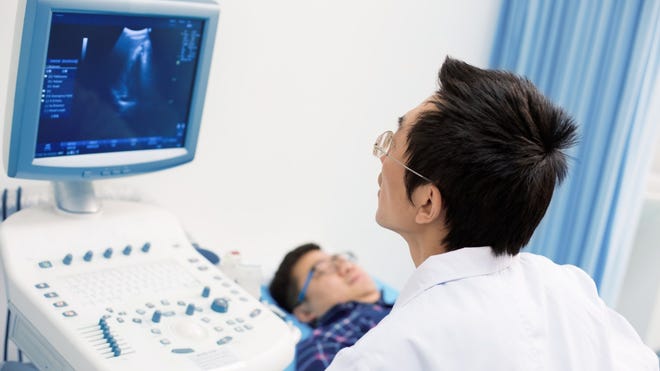
11, Nov 2021
A sudden urge to use the restroom can be quite distressing. But there are some steps you can take to alleviate urinary incontinence with exercises, lifestyle changes, medications and procedures.
The urinary bladder is an organ that holds urine. Certain problems affecting your bladder can cause unexpected urine leakage and painful urination. There are various types of urinary incontinence.
Stress incontinence is leakage with pressure on the bladder, such as when laughing or coughing. It occurs predominantly in women due to weakened or stretched pelvic floor from childbirth. Symptoms of stress incontinence may occur in men who had their prostate removed.
Urge incontinence or overactive bladder is an inability to get to the restroom in time. It is caused by overactive contractions of the bladder muscle that may be related to an enlarged prostate in men, changes to bladder muscle in mainly postmenopausal women, or a chronic neurological condition, such as multiple sclerosis.
Breast cancer facts:Mitra: Breast cancer kills 40,000 women each year, but early detection has high survival rate
You and yoga:Mitra: Yoga's mental, physical benefits can make you centered, healthier and happier
COVID vaccine 411:Dr. Mitra: Breaking down COVID-19 vaccines and why they work the way they do
Overflow incontinence happens when the bladder is not emptying properly due to blockage or malfunction from a neurological disorder or a medication effect. Overflow incontinence primarily occurs in men with an enlarged prostate. The urine accumulates in the bladder for long periods, thereby increasing the risk of bladder infection.
There are many ways you can improve bladder health. Drinking six to eight 8-ounce glasses of fluid each day is an easy first step. Some people, however, need to drink less water because of certain conditions, such as kidney failure or heart disease.
Ask your doctor as to how much fluid intake is healthy for you. Avoid constipation by consuming plenty of high-fiber foods, drinking water, and being physically active at all times.
Try to urinate at least every three to four hours. Holding the urine for too long weakens the bladder muscles and increases the risk of bladder infection.
Wiping from front to back, voiding shortly after a sexual encounter and wearing loose cotton underwear and loose-fitting clothes also reduce the chances of bladder infection.
For urge incontinence, you can maintain a bladder diary and set up a schedule for timed voiding and self-educate to cope with triggers that set off the urge to go, such as washing the dishes or hearing the water flow.
Other strategies include watching fluid intake, quitting smoking and minimizing bladder irritants such as caffeinated or carbonated drinks and alcohol.
Pelvic floor muscle strengthening may be helpful to people with stress incontinence and those with urge incontinence.
Pelvic floor rehabilitation includes Kegel exercises, which involve squeezing and releasing the muscles to hold urine in the bladder. Daily exercises can strengthen these muscles, thereby helping to keep urine from leaking during sneeze, cough, lift, laugh or a sudden urge to urinate.
Medications may also help when the above trials fail.
Anticholinergics, such as Oxybutynin, are most commonly prescribed for urge incontinence.
Common side effects can include dry mouth, headache and constipation.
Tricyclics like imipramine often help stress incontinence. Alpha-blockers such as doxazosin may help by relaxing the smooth muscle of the prostate.
Injections of botulinum toxin, a muscle relaxant, also treat urge incontinence. However, there is a higher incidence of urine retention and risk of bladder infection with botox injections.
A procedure called sacral neuromodulation where a small device called Interstim is implanted in the lower back to stimulate the sacral nerve can improve bladder problems like urge incontinence.
Surgery involving a sling sometimes is used for stress incontinence.
Prostate surgery may help in cases of blockage from the prostate. Surgery may also be needed to correct overflow incontinence caused by obstructions or abnormal growths in the urinary tract.
Dr. Sue Mitra is a Board Certified Internist and accepting new patients. Call Dr. Mitra at 321-622-6222 to discuss more on bladder health. Help promote bladder health awareness this month.
Dr. Sue Mitra and her staff strive to offer their patients the best care, advice and services available in the medical field with the goal to keep patient healthy & happy.

Dr. Sue Mitra is board certified in international medicine. She is seen here with a Cologuard, which is a noninvasive colon cancer screening test. (Photo by: Tim Shortt/Florida Today)